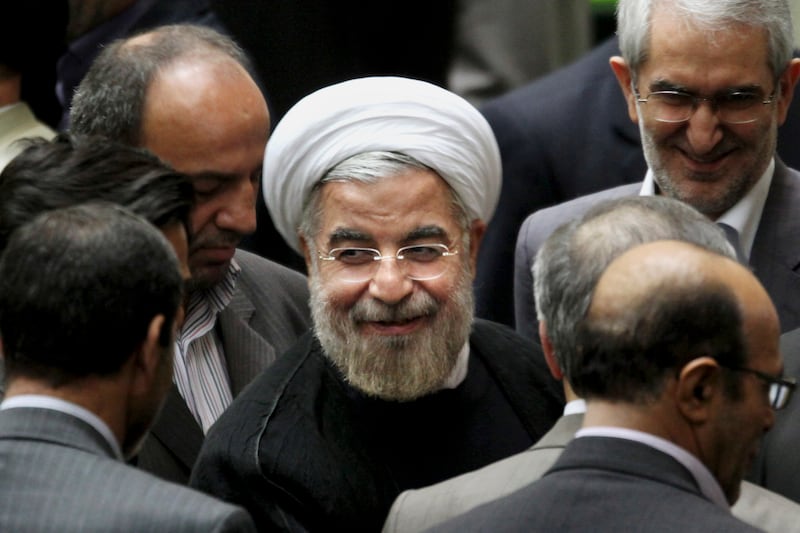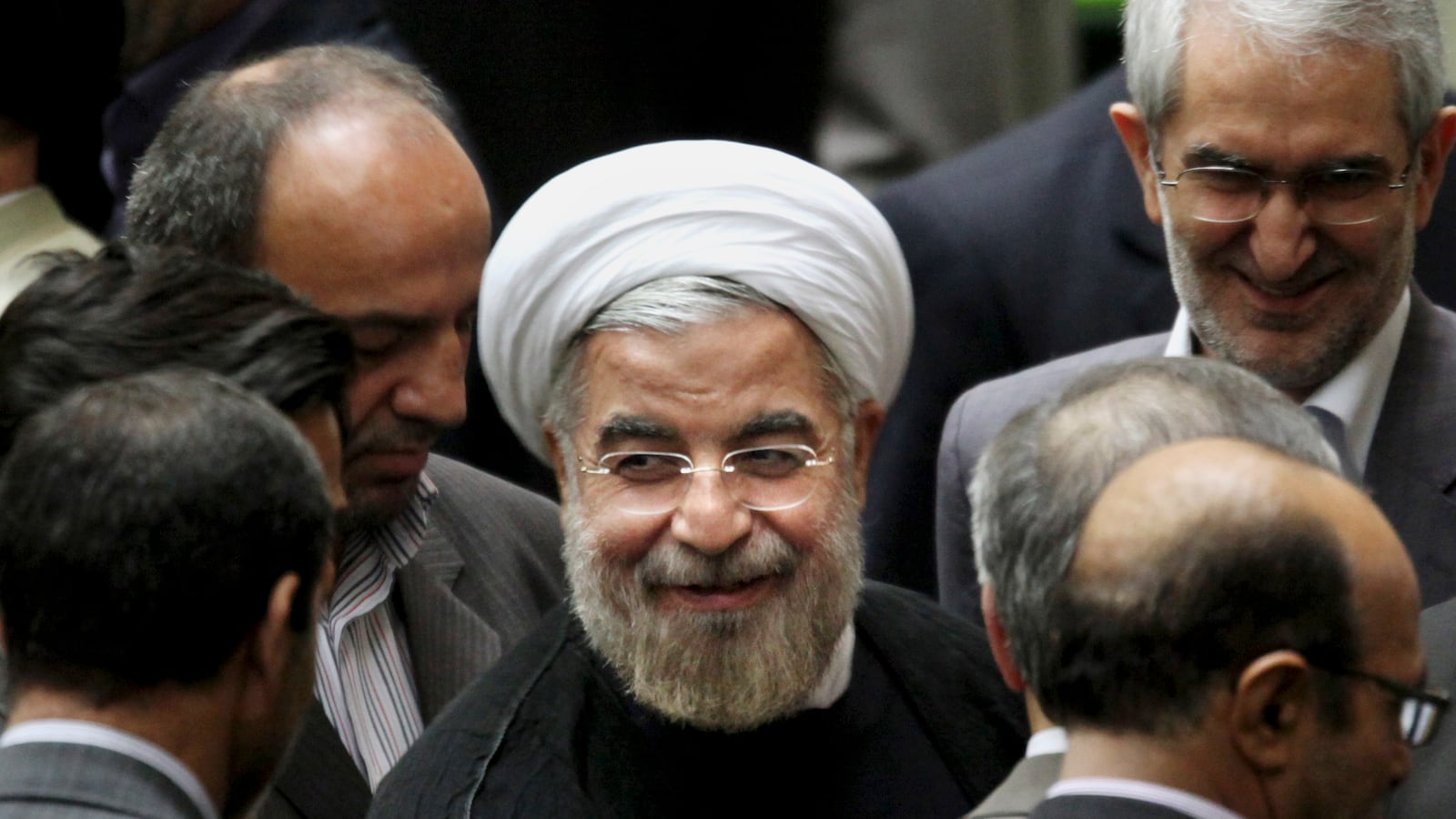If the United States and Iran do reach a nuclear deal, two U.S. senators will deserve much of the credit: Republican Mark Kirk of Illinois and Democrat Bob Menendez of New Jersey. They wrote the sanctions that cut Iran off from the international payments system. They led the fight to pass those sanctions into law back in 2011. And they did it over the objections of President Obama and his White House.
(I wrote about that battle at the time.)

The U.S. and its allies had applied sanctions to Iran for years before Kirk and Menendez got into the act. Robert Morgenthau, district attorney in Manhattan, had enforced legal penalties against banks that flouted U.S. rules against trading with Iran. But it’s never easy to sanction an oil exporter, especially not when demand is strong and the price is high—as has been the case since China and India emerged as big oil importers.
Kirk and Menendez cracked that problem. Their bill told the world’s banks: If you do business with the central bank of Iran, or any other bank that does business with Iran, then you cannot do business with any American bank, including the Federal Reserve. No checks. No wire transfers. No access to ATM networks. Nothing.
Kirk-Menendez did not stop Iran from selling oil. But it did stop Iran from selling oil for cash. Since Kirk-Menendez went into effect in the summer of 2012, Iran has been forced to do business by a crude and inconvenient barter system. The Iranian currency has lost three-quarters of its value against the dollar. Economic discontent has raged inside Iran—and it is that discontent that has inspired the new Iranian president, Hassan Rouhani, to turn a cuddlier image to the world.
How this will all end remains uncertain. But one thing we can expect: if the Kirk-Menendez sanctions do force change on Iran, the Obama administration will claim credit for the strategy it resisted at the time.
In December 2011, Kirk and Menendez inscribed their sanctions into the Defense Authorization Act, the bill that defines the Pentagon’s budget. Behind the scenes, the Obama administration frantically lobbied senators to delete Kirk-Menendez. The Obama administration argued that Kirk-Menendez was unnecessarily confrontational and encroached on presidential authority.
Senators suspected that the Obama administration’s deeper fear was that any new sanction might raise the price of oil—and thus jeopardize the president’s 2012 re-election hopes.
Whatever the administration’s motive, its lobbying failed. The Authorization Act containing Kirk-Menendez passed the Senate 100-0. The president had little choice but to sign the bill and enforce the law.

It’s way early to predict the outcome of the talks Iran is now publicly seeking. Dealing with Iran is always deeply frustrating. A German diplomat told me that when he was involved in multiparty talks with Iran back in the mid-2000s, his Iranian counterpart regularly would disavow the next day any concessions he had offered the day before. The German responded by ending a session with a demand that the Iranian sign the minutes of the meeting. The Iranian complied. The next day, the Iranian again disavowed the previous day’s work. The German pointed to the minutes. The Iranian studied them and replied, "That’s not my signature."
So we’ll see.
But if things turn out well—if the Iranian nuclear threat is ended peacefully—the United States will have scored one of its greatest diplomatic successes since the end of the Cold War. Presidents like to pounce on the credit for success. Let’s be sure not to overlook the two clear-eyed senators who will most truly deserve that credit.






